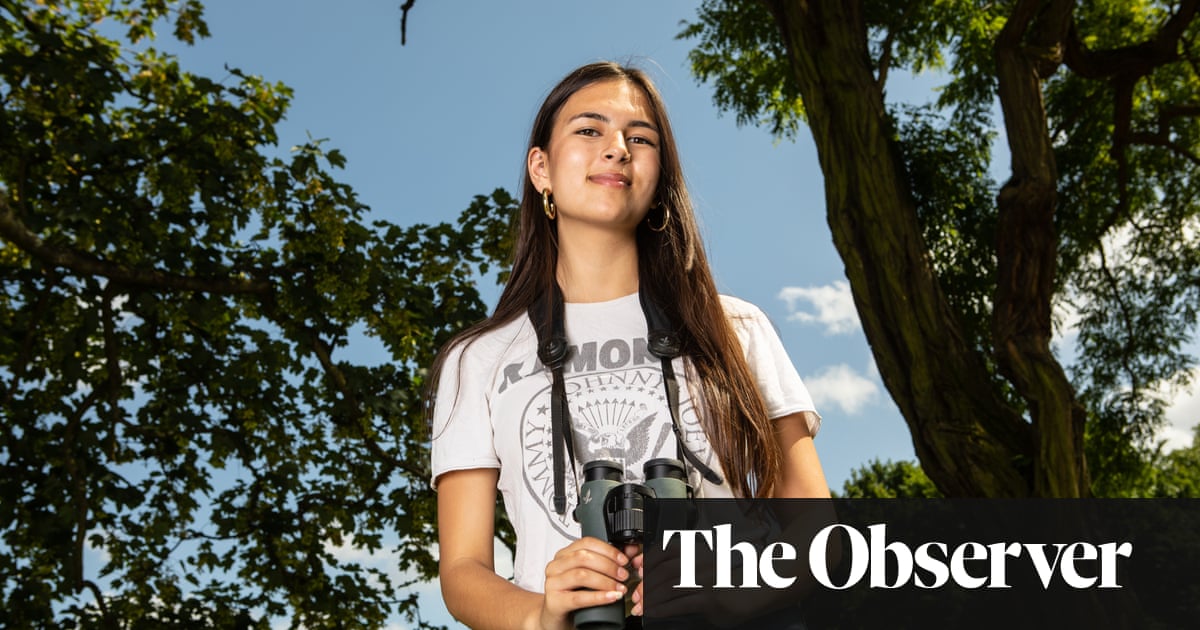Birdwatcher Mya-Rose Craig: ‘The nature sector is decades behind in terms of diversity’ - 5 minutes read

Mya-Rose Craig is a 20-year-old birdwatcher and activist who grew up in a village near Bristol. She has been a birder since birth (well, her first trip was at nine days old) and, aged 17, became the youngest person to see half the world’s 10,000-plus species of birds. Craig is also the founder of the charity Black2Nature, which encourages children from minority ethnic backgrounds to spend time in nature. Her memoir, Birdgirl, is a lyrical appreciation of a lifelong obsession, and a powerful account of the Craig family’s attempts to manage her mother’s bipolar disorder.
Straight after this interview, you are going to be on stage with Billie Eilish at the O2 for her climate festival, Overheated. Do events like this give you hope that your generation will have an impact on the climate crisis?
Oh, it’s absolutely bonkers. But I always really enjoy doing events like this, where someone with this massive platform and massive influence is using that for good. It feels very similar to going to Cop26 with Emma Watson. Just meeting these incredibly dedicated, passionate people, I think: “How can you not feel hopeful about the future when these people just care so much, and are working so hard?” And I think you do have to be an optimist to be an environmental activist.
Are you going to hang around for Billie Eilish’s gig?
Basically my [university] exams ended yesterday and most of my friends’ exams end today, so unfortunately I am going back to uni this evening so that we can all have a big celebration.
What’s the attraction of birdwatching to you?
I’ve never been the type of person who’s patient enough to do meditation or something like that. So being outside is my version of mindfulness. But the thing I find really hard to describe to people is, it’s not even that birdwatching is a hobby. I just am a birdwatcher at this point: I am constantly watching birds. I’m very often having conversations with people and watching the birds fly outside the window, or even just watching pigeons hop around. I’m always aware of the bird life around me, because it’s so intrinsically part of me and my identity.
Have you ever been self-conscious about doing it?
At primary school, I don’t think I ever considered it strange. But as I got older and was this painfully awkward teenager, I became deeply aware of just how strange it was. And it was this very weird dichotomy where I was furiously embarrassed of my hobbies, but simultaneously, I was totally incapable of stopping. But one of the nice things about getting that bit older is becoming mature enough to realise that people don’t care that much about what you do in your spare time. I do think no one is more self-centred than a very self-conscious teenager!
Was it difficult writing about your mum’s mental illness?
On a personal level, it was really cathartic. There were a lot of things that I had just never thought about, or thought about within the bigger picture. Just understanding much more explicitly that journey that my family had been through, and the way that we had stuck together and the way we used nature – I hadn’t really even registered that before. I had a long conversation with my mum about it – the importance of having honest conversations about mental health – and she was really onboard about explicitly putting those details out there.
Birding has traditionally been a very white, mostly older activity. Is that changing?
In the past six or seven years, since I set up Black2Nature, I think there has been a very, very slow period of change. But I can’t emphasise this issue enough: it feels like the nature sector is two or three decades behind most other sectors in terms of diversity. It’s really shocking. But to me one of the biggest achievements was when I was able to actually have explicit conversations about this issue with various nature organisations and CEOs. And they listened. And they accepted that there was a problem. That felt like a major breakthrough.
What do they do?
Oh, all sorts of things. She’s putting out an album every six months at the moment. So we have club nights, we have album-listening parties. We went to a pub quiz once that me and my mates were sort of terrible at. We don’t know enough about Taylor Swift, apparently.
In 2020, you became the youngest recipient of an honorary doctorate, when you were awarded one by Bristol University. Is it strange arriving at university already being a doctor?
Yes. I knew very quickly I would not be calling myself doctor at uni because I thought all my supervisors who actually had doctorates might get a bit upset. But it is very strange. There are some absolutely insane things that have happened to me that I’m like, “Oh, eventually, it must sink in…” And it just never does. The doctorate is one of those things.
After university, are you open to what happens next?
Yeah, totally. I have no clue what I want to do, which I tell myself is fairly normal probably for people my age. But this sort of burning desire to try to make the world a slightly better place – or at least give it a go – was so built into me from my family that I can’t imagine I’m ever not going to be engaging with activism and campaigning in some shape or form.
Source: The Guardian
Powered by NewsAPI.org